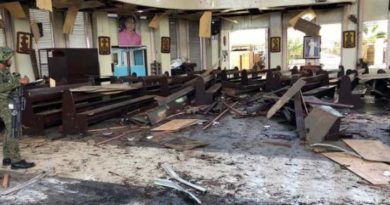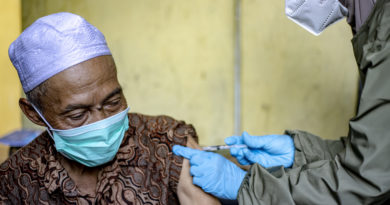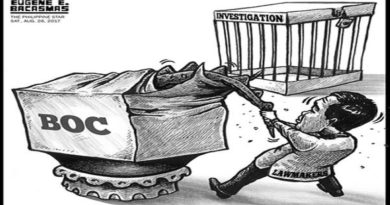EDITORIAL: The Straits Times says- Managing risks is key in reopening
The Straits Times

Over the weekend, Beijing entered what its leaders called a “wartime mode” as the Chinese capital saw a major outbreak of the coronavirus after 55 days of zero local infections. Since the first case was discovered in the city of 21 million last Thursday, more than 100 new infections have been confirmed, mostly linked to its biggest wholesale food market, Xinfadi, in the south-west. Cases have spread to two other of the city’s markets. Worryingly, cases connected to Xinfadi have been picked up as far away as north-eastern Liaoning province. Because of the size of the Xinfadi market, with over 8,000 stallholders and thousands more visiting it every day, it is a monumental task to trace and isolate. City authorities have since taken tough measures, locking down high-risk residential compounds, many in the vicinity of the markets, shutting all schools and imposing restrictions on travel out of the city. These are tougher than those they took at the height of the Covid-19 pandemic in China earlier this year.


This sudden outbreak is a blow not just to Beijing, which just lifted some restrictions this month and still has some stringent ones in place, but also to the country which is already facing the challenge of reviving a national economy battered by the pandemic. Grim as the situation is, it is part of a worrying trend seen elsewhere, as countries ease restrictions put in place to contain the coronavirus so they can get their ravaged economies going again. Tokyo has seen a surge in new cases ahead of a plan to completely lift business restrictions tomorrow. South Korea is grappling with a growing number of elderly patients and a rise in untraceable cases even as 27 new clusters have popped up since the government eased social distancing rules early last month. In the United States in recent days, new cases and hospitalisations in record numbers have appeared in more states as most of them are reopening.


Yet, even China is reluctant to impose the kind of lockdown in Beijing that it did in Wuhan as the economic costs will be very high, especially as businesses and factories have geared up to resume operations. Beijing’s vigorous efforts to contain this new outbreak will be watched as its success, or otherwise, has a far-reaching impact.


China has chosen, for now, to take tough but targeted measures. A shutdown of the capital of the world’s second largest economy can retard the spread of the virus, but could be potentially devastating at home and abroad. There is a degree of inherent risk as countries open up and governments work to preserve jobs, businesses and economies. The fresh outbreaks in China and elsewhere underline just how important it is to be vigilant, socially responsible and personally disciplined. A fresh wave and more lockdowns could prove more damaging to the very lives and livelihoods that countries are trying to protect.


Read the latest on the Covid-19 situation in Singapore and beyond on our dedicated site here.
Get The Straits Times app and receive breaking news alerts and more. Download from the Apple App Store or Google Play Store now.


SIGN UP TO RECEIVE OUR EMAIL
.
The most important news of the day about the ASEAN Countries and the world in one email: [email protected]
6.18.2020









